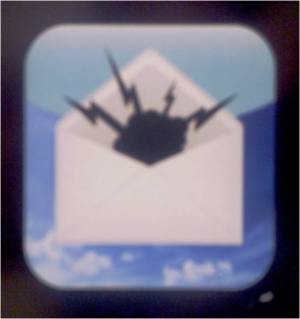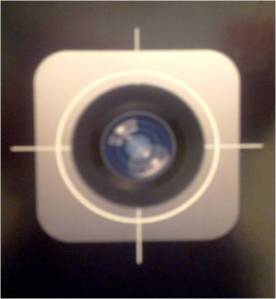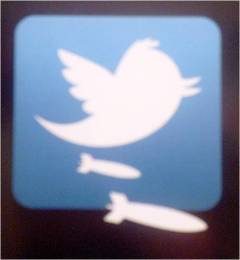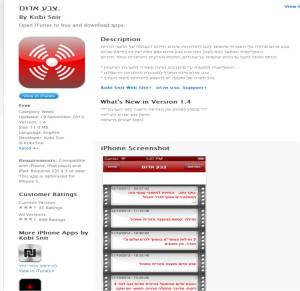The military is probably the most threatened organization by the digital revolution. This is one of the main reasons why today’s militaries across the world, though pushing for rapid technological advancement, remain as primitive as they possibly can when it comes to basic telecommunications.
I can’t begin to describe how frustrating it is not to be able to use a flash drive, a Gmail account or connect an outlook address to a phone. I mean, come on, this is the military, no?
not to be able to use a flash drive, a Gmail account or connect an outlook address to a phone. I mean, come on, this is the military, no?
The Israeli military, for example, is in the midst of upgrading its staff’s cell phones to the latest iOS and Android models. Knowing that high speed internet connections and high resolution cameras,
as well as personal involvement in social media networks come with a high risk to national security, the Israel Defense Forces (IDF) launched an extensive awareness campaign along with rewriting its telecom field intelligence doctrines.
Before you is an inside look at the advertising campaign which has already been shared via military diplomacy channels, with counterparts around the world who are facing the same challenges:
Who is the Target Audience? 
The military, in Israel as well as all over the world, is a client which heavily restricts the advertising agency in all its departments, which definitely has its toll on the creative department but at the same time, poses a great challenge to produce excellent results that is memorable and truly penetrates the target audience. The campaign was intended for the senior officers of the Israel Defense Forces, as part of the organized transition to smart phones in the use of military personnel. The campaign ran in the various military bases and concentrated mostly on print and related BTL materials, as part of a nationwide information campaign scope.
Maintaining Maximum Minimalism
The specific target audience of this campaign was mostly officers and soldiers of the Israel Defense Forces. The underlying assumption was that the target audience is intelligent and that we have to touch a nerve in order to get to them, while striving to maintain maximum  minimalism. The response of the Israel Defense Forces officers was very positive resulted in minimal violations of the regulations imposed by the IDF’s Information Security Department. When addressing soldiers, it is best to use terminology relevant to the military world, therefore the smart phone applications were turned into “arms” in order to convey the message that media can serve as a “weapon” if used incorrectly.
minimalism. The response of the Israel Defense Forces officers was very positive resulted in minimal violations of the regulations imposed by the IDF’s Information Security Department. When addressing soldiers, it is best to use terminology relevant to the military world, therefore the smart phone applications were turned into “arms” in order to convey the message that media can serve as a “weapon” if used incorrectly.
The audience is asked “not to point it at us” (i.e to be used under the proper Field Security regulations). A simple message, precise and visually clear backed with a wink and used in slang and updated lingo.
Sense and Sensibility
With technological progress and endless media options available today comes the major challenge of keeping information secure, a severe problem for an organization of high sensitivity as IDF intelligence. Israel Defense Forces, like many western armies around the world, upgraded to smart mobile phone use by officers in order to improve communication within the military. The main challenge faced by military officials after this move, is the prevention of leakage of confidential content and classified information. As part of coping with the challenge, the IDF contacted a well known advertising company in request to produce a campaign highlighting the phone’s weak spots in relation to information security.
In a country like Israel, where security issues are particularly sensitive, the importance of a wide- ranged campaign was gravely important. In addition to the campaign, a special PR team was established to hop between bases to provide workshops on the subject. Ideological concept of the campaign – the smart phone is a weapon. Do not point it against us.
Known icons from the app world, smart phones and social networks were given a visual twist making them resemble weapons, thus visually  sharpening the sense of danger.
sharpening the sense of danger.
The campaign was well received by the officers and soldiers. It ran in all IDF units (though the initial thought was to run the campaign strictly in the Intelligence Corps). In addition, the campaign was presented to senior intelligence officers of other countries military organizations who as a result, will be adapting the method, namely the Italian and American armies.
I recently visited my old base, reporting for reserve duty, and indeed, the posters are up everywhere: Twitters cute little bird dropping a bomb, Instagram’s lens zoning in on a target, Facebook’s F is holding a gun and so many more little deathly adaptations of icons. At times visually forced but overall very cute and effective.
Too bad they can’t spread them on a banner due to security restrictions…












